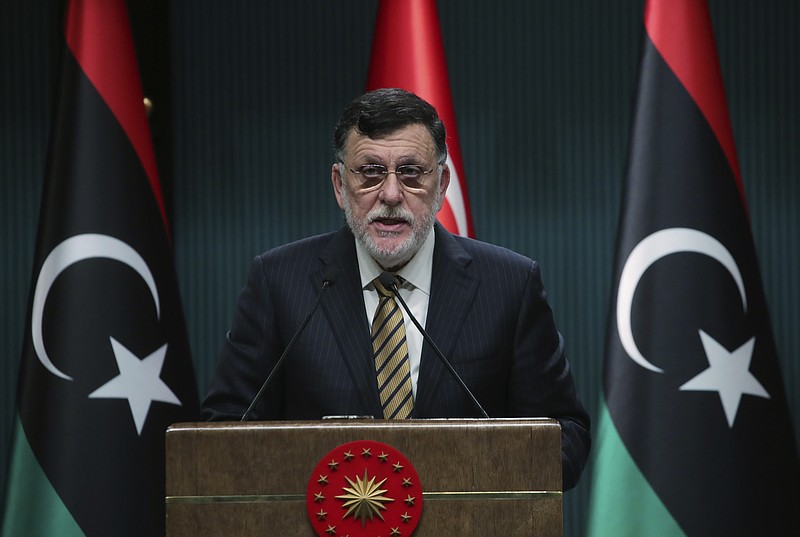CAIRO -- The United Nations on Saturday voiced alarm over what it called "a dramatic turn of events" in Libya's civil war, after a power struggle between leaders of the Tripoli-based government surfaced in the wake of anti-corruption protests.
Protests over deteriorating economic conditions occurred last week in the capital and elsewhere in western Libya, which is controlled by forces loyal to the U.N.-supported government. In Tripoli, local militia allied with the government opened fire on demonstrators with rifles and truck-mounted guns and abducted some of the protesters.
"Libya is witnessing a dramatic turn of events that underlines the urgent need to return to a full and inclusive political process," the U.N. support mission in Libya said.
Prime Minister Fayez Sarraj and his interior minister, Fathi Bashaga, initially accused "outlawed infiltrators" of instigating the violence. The prime minister also said protesters "did not obtain necessary permits" and described the demonstrations as "riots."
However, on Friday, Sarraj suspended Bashaga and initiated an administrative investigation after Bashaga accused a government-allied militia of attacking the peaceful protesters in Tripoli.
Bashaga, who was excluded from two high-profile military and security meetings in the capital over the past few days, quickly responded. He said in a statement he accepted the premier's decision but demanded a public and live questioning "to expose the facts" to the Libyan people. He did not elaborate.
Militias in Tripoli celebrated the minister's suspension by firing weapons into the air, while others in Bashaga's hometown of Misrata took to the streets to show support for the minister.
The dispute between Sarraj and Bashaga threatens to deepen a rift within the U.N.-supported government less than three months after Tripoli-allied forces, with Turkish support, ended a 14-month siege by rival forces of military commander Khalifa Hifter.
Hifter's forces launched an offensive in April 2019 trying to capture Tripoli. But his campaign collapsed in June when the Tripoli-allied militias, with heavy Turkish support, gained the upper hand, driving his forces from the outskirts of the city and other western towns.
The U.N. mission in Libya said it was still concerned about "the excessive use of force against demonstrators as well as the arbitrary arrest of a number of civilians." It did not say how many people were detained.
Retweeting the mission's statement, the U.S. Embassy in Libya urged Sarraj and Bashaga toward "cooperation" in the interests of "the Libyan people."
Over the past two days, militias sealed off main streets and roads to prevent the demonstrators from reaching Tripoli's Martyrs Square, the epicenter of the protests, according to two residents who spoke on condition of anonymity for fear of reprisals.
A group of women protested in the city center before being dispersed. Two women were wounded and four were arrested, according to the protest movement, known as Hirak Aug. 23.
The movement called for civil disobedience until achieving their demands that include handing over power to the Supreme Judicial Council to work toward presidential and parliamentary elections.
The Libyan Crimes Watch, a local rights group monitoring the conflict, said Saturday a protester died of his wounds after he was shot Friday when a militia dispersed the protesters in the city center.
Protests also spread to the southern town of Sabah and the eastern town of Quba, both under the control of rival east-based Libyan forces led by Hifter.
The U.N. also said it is concerned about "on-going human rights violations and abuses" in the coastal city of Sirte, which has been controlled by Hifter's forces since January. It said at least one civilian was killed and several people were arrested.
Oil-rich Libya was plunged into chaos when a NATO-backed uprising in 2011 toppled longtime dictator Moammar Gadhafi, who was later killed. The country is now split between east- and west-based administrations, each backed by different armed groups and foreign governments.

